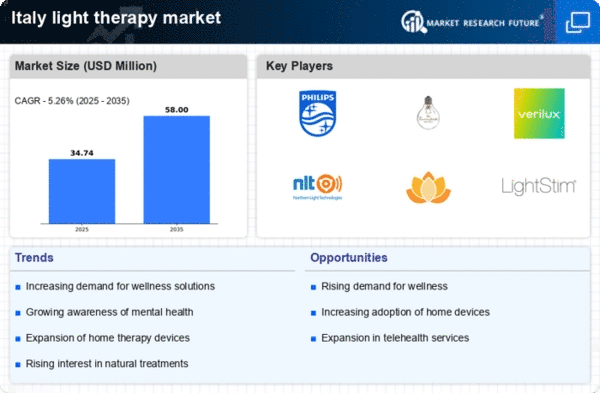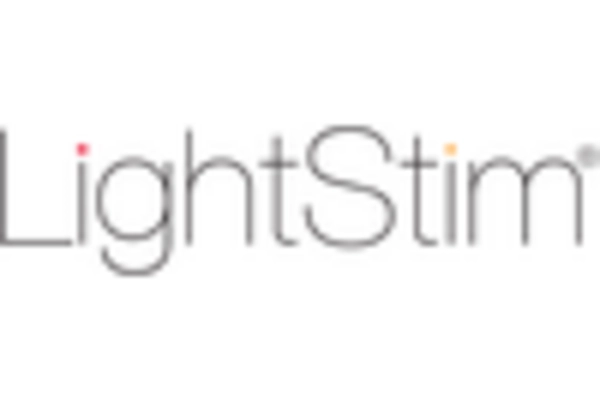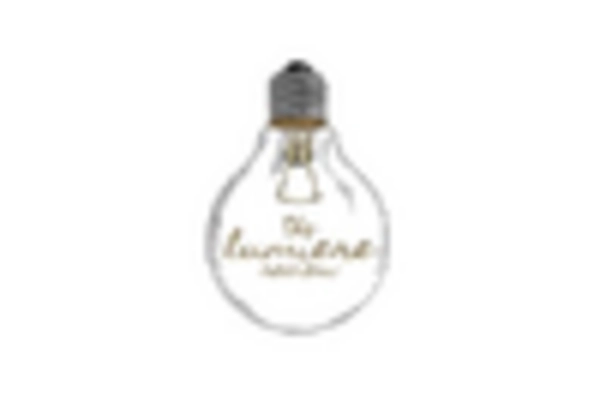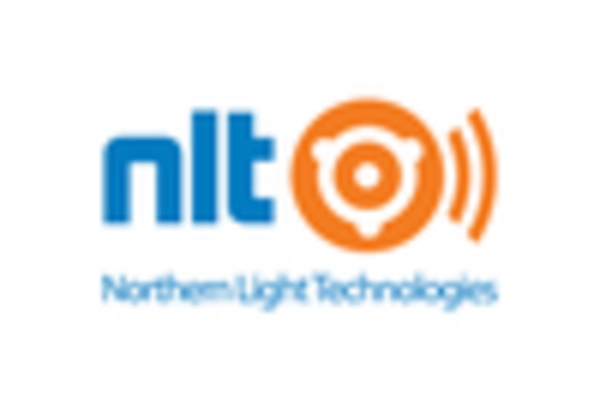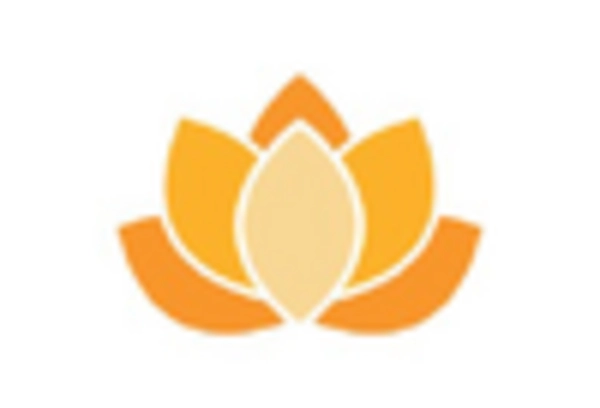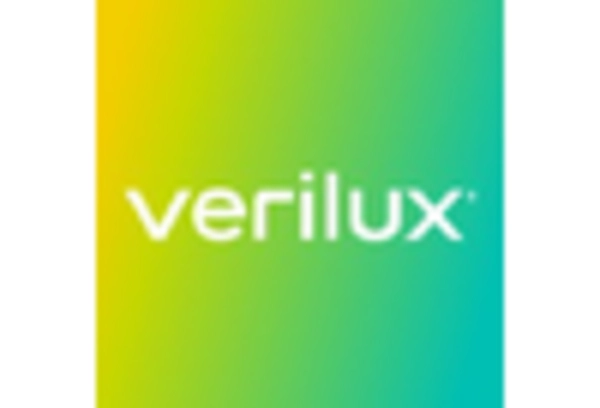Rising Incidence of Mood Disorders
The prevalence of mood disorders in Italy is contributing significantly to the growth of the light therapy market. With an estimated 10% of the population experiencing some form of depression or anxiety, the need for effective treatment options is paramount. Light therapy has been recognized for its potential to alleviate symptoms associated with these conditions, particularly during the darker months. As awareness of mental health issues continues to rise, more individuals are turning to light therapy as a complementary treatment. This shift is likely to enhance market penetration, as healthcare providers increasingly recommend light therapy devices to patients. The light therapy market is thus positioned to expand, catering to a population that is actively seeking innovative solutions for mental well-being.
Advancements in Light Therapy Devices
Technological innovations in light therapy devices are playing a crucial role in shaping the light therapy market in Italy. Recent advancements have led to the development of more efficient and user-friendly devices, which are appealing to consumers. For instance, the introduction of portable and wearable light therapy solutions has made it easier for individuals to incorporate therapy into their daily routines. Market data suggests that the segment of portable devices is expected to witness a growth rate of around 12% annually. This trend indicates a shift towards convenience and accessibility, which is likely to attract a broader audience. As manufacturers continue to invest in research and development, the light therapy market is poised for further expansion, driven by enhanced product offerings.
Support from Healthcare Professionals
The light therapy market in Italy is experiencing a boost due to the increasing endorsement from healthcare professionals. As more practitioners recognize the benefits of light therapy for various conditions, including sleep disorders and skin issues, they are increasingly recommending these treatments to patients. This professional support is crucial in legitimizing light therapy as a credible treatment option. Recent surveys indicate that approximately 60% of healthcare providers in Italy are now familiar with light therapy and its applications. This growing acceptance is likely to enhance consumer trust and drive market growth. As healthcare professionals continue to advocate for light therapy, the market is expected to expand, reflecting a shift towards integrative approaches in patient care.
Increased Focus on Preventive Healthcare
The light therapy market in Italy is benefiting from an increasing focus on preventive healthcare. As the healthcare landscape evolves, there is a shift towards proactive measures that prioritize wellness and disease prevention. Light therapy is increasingly recognized for its role in enhancing mood and overall well-being, making it an attractive option for those looking to maintain their health. This trend is reflected in the rising sales of light therapy devices, which have seen a year-on-year increase of approximately 15%. The integration of light therapy into preventive health strategies suggests a promising future for the market, as more individuals seek to incorporate these therapies into their daily lives. This focus on prevention aligns with broader public health initiatives aimed at reducing the burden of chronic conditions.
Growing Demand for Non-Invasive Treatments
The light therapy market in Italy is experiencing a significant increase in demand for non-invasive treatment options. As consumers become more health-conscious, they are seeking alternatives to traditional medical interventions. Light therapy, known for its efficacy in treating conditions such as seasonal affective disorder (SAD) and skin disorders, is gaining traction. Recent data indicates that the market is projected to grow at a CAGR of approximately 8% over the next five years. This trend suggests that more individuals are opting for light therapy as a viable solution, thereby driving the market forward. The increasing preference for non-invasive therapies aligns with the broader shift towards holistic health approaches, further solidifying the position of light therapy in the healthcare landscape of Italy.


